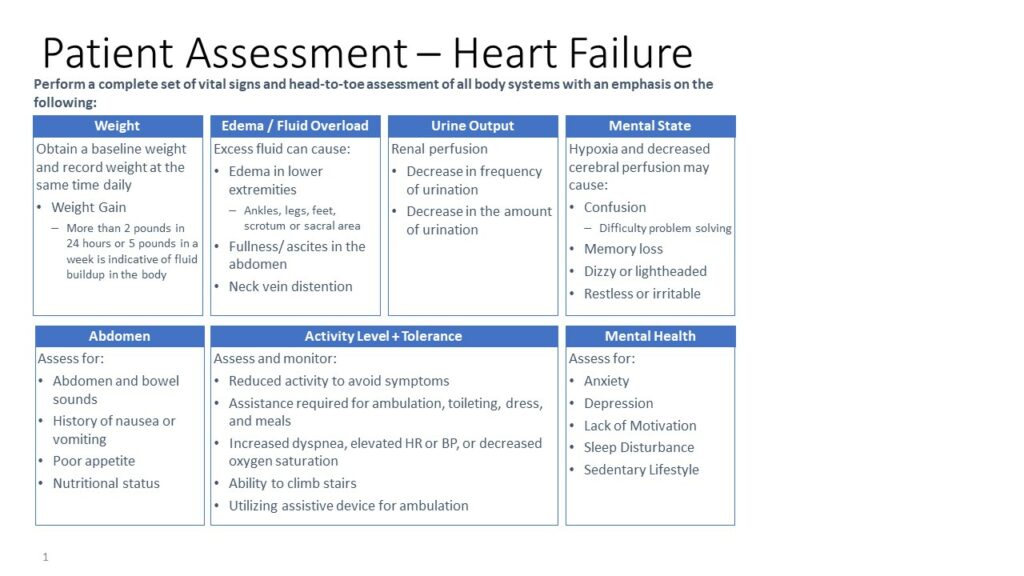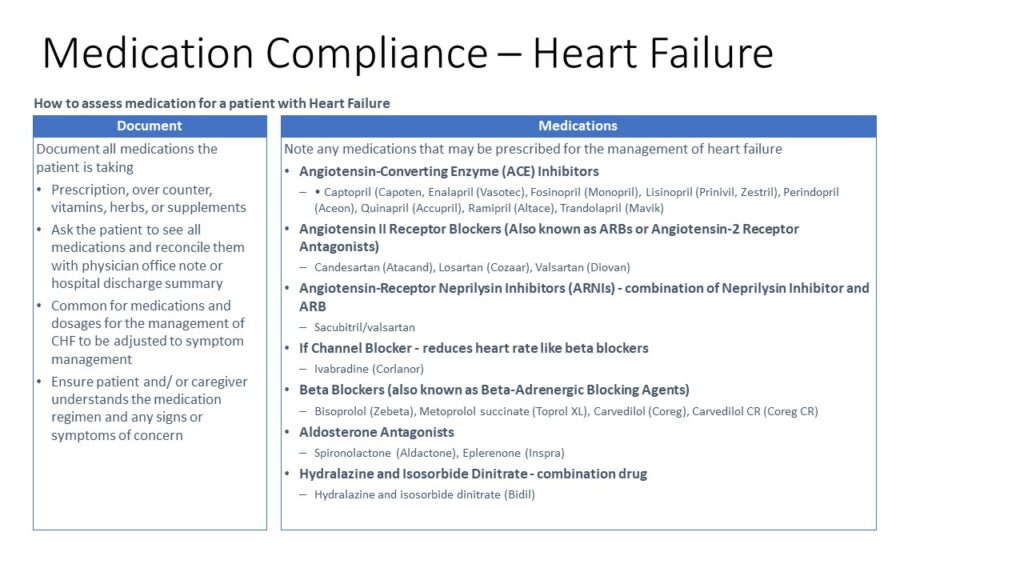Prevalence of Heart Disease
Heart disease remains a significant health concern for many seniors across the Dallas – Fort Worth area. Understanding the symptoms of heart conditions; making necessary lifestyle changes to manage life after CHF diagnosis; and implementing a patient-centered care plan can help reduce the risks of these conditions.
This article explores the prevalence of heart disease in seniors and emphasizes the importance of proactive care management, lifestyle changes, medical intervention, and the critical role caregivers play in supporting seniors with heart conditions.
Understanding Heart Conditions
Heart disease encompasses a range of conditions that affect the heart’s structure or function. A few of the most common types seen in seniors are congestive heart failure, hypertension, coronary artery disease (CAD), and angina. Recognizing the symptoms of heart conditions is crucial for early detection and intervention. Neglecting these symptoms or failing to manage heart conditions can result in severe complications, reduced quality of life, and even premature death. Moreover, heart conditions can limit seniors’ ability to live independently, necessitating additional support to ensure their well-being.
Impacts on Seniors
After being diagnosed with Congestive Heart Failure (CHF), many patients and their families are left wondering what to do next and how to navigate an extensive care plan with necessary lifestyle changes, medication compliance, and care supports like registered nurses, and therapists. Quality caregivers can help facilitate this process for both the patient and their family.
Lifestyle Changes
Seniors diagnosed with congenital heart failure should embrace necessary lifestyle changes. 3 essential changes to benefit all CHF patients are as follows:
- Adopting a heart-healthy diet which is paramount in improving symptoms and quality of life.
- Regular exercise prescribed by a doctor and supervised by an experienced caregiver to ensure that it aligns with the patients physical capabilities.
- Quitting smoking is imperative for improved health because it poses significant risks to heart health.
By making these changes, seniors can proactively manage their condition and improve their overall well-being.
The CRITICAL Importance of a Coordinated Care Plan team
In establishing a comprehensive care plan for seniors post CHF, the need for coordinated care between in-home caregivers, registered nurses, and therapists (occupational and physical) is key to recovery and longevity.
By fostering a cohesive approach that relies on interactive coordination between these 3 groups of healthcare professionals, the delivery of personalized, evidence driven and highly effective care is ensured.
Through a well-coordinated care plan specific to CHF, an experienced team of nurses, caregivers and therapists supporting seniors with congestive heart failure can optimize their ability to have a better quality of life.
Here is an example of the assessment factors that we, at Care Mountain, utilize in our evaluation when we develop personalized care plans for each of our CHF patients:

Medication Compliance
Following a diagnosis of congestive heart failure, strict adherence to medication protocols is crucial. Seniors must prioritize taking their prescribed medications as directed. Consistency in medication intake helps regulate heart function and manage symptoms effectively. Regular medical check-ups are essential to monitor the medication’s efficacy and make any necessary adjustments. By diligently following medication protocols, seniors can optimize their heart health and enhance their overall quality of life.
Below is an example of the assessment factors we, at Care Mountain, use for evaluation when developing our personalized, medication compliance plans:

In-home Caregivers
In-home caregivers play a vital role in providing daily assistance with lifestyle changes (e.g. diet, exercise), emotional support, personal care, facilitating exercise routines, and assisting with meal planning, doctor visits, medication compliance (under supervision of an RN), and preparation specific to the required lifestyle changes.
Typically, a CHF patient requires 4-12 hours of daily support from an experienced caregiver (Certified Nursing Assistant / Home Health Aide). This is usually supplemented with remote patient management support (described below) for overnight care.
Registered Nurses
Registered nurses oversee medical needs, and monitor overall health. They document and assess the patient’s vital signs, heart function, and medication management. They also collaborate with other healthcare professionals to develop and implement personalized care plans tailored to their patient’s specific needs. Registered nurses also educate seniors and their families about the condition, treatment options, and self-care techniques to be implemented in the home in conjunction with the live-in caregiver.
Typically, a CHF patient requires 1-2 visits per week from an experienced Registered Nurse specializing in CHF specific home healthcare. Each visit typically lasts about 1-2 hours.
Therapists
Therapists – both physical and occupational, contribute by enhancing mobility, function, and overall well being.
Physical therapists focus on improving mobility, strength, and endurance through targeted exercise and activities. They design exercise programs that are safe and appropriate for seniors with heart failure, helping them regain or maintain physical function. These exercises may include aerobic conditioning, balance/ strength training, and flexibility/ stretching exercises.
On the other hand, occupational therapists focus on enhancing seniors’ ability to perform daily activities and maintain independence. They assess functional abilities and develop strategies to overcome any challenges related to self-care, household tasks, and mobility. For example, energy conservation is essential for CHF patients. Occupational therapists might recommend wearing an apron with multiple pockets to carry cooking utensils or cleaning supplies to reduce the amount of effort and conserve energy while completing daily tasks around the home. Occupational therapists may provide recommendations for adaptive equipment or assistive devices to support seniors in their daily routines.
Typically, CHF patients require 1-2 visits per week from an experienced team of physical and occupational therapists specializing in CHF specific therapy for home healthcare. Each visit usually lasts about 2 hours and includes both demonstration and instruction for patients and caregivers to maintain therapy routines between visits to optimize patient health and well-being.
Devices & Remote Patient Management
Caregivers utilize various devices and techniques to help manage the care for patients with congestive heart failure. Devices like blood pressure machines play a crucial role in monitoring patients’ vital signs, including blood pressure, which is a key indicator of heart health. Caregivers can regularly measure and track blood pressure readings to assess the effectiveness of treatment and medication adjustments.
Remote patient management (RPM) is a valuable approach we use as healthcare professionals in helping manage a patient with CHF.. RPM involves the use of technology to remotely monitor patients’ health conditions. With the help of wearable devices and sensors, caregivers can track vital signs, such as heart rate and oxygen saturation levels, in real-time. This enables leading indicators tracking, and hence timely intervention and proactive management of congestive heart failure. RPM allows caregivers and client families to stay informed about any changes in patients’ health and provide necessary support or adjustments to their care plan.
Telehealth, or virtual healthcare, is another important tool for caregivers managing patients with congestive heart failure. Through telehealth platforms, caregivers can remotely connect with healthcare professionals, including doctors, nurses, and specialists. This enables them to have virtual consultations, discuss symptoms, share test results, and receive expert guidance without the need for in-person visits. Telehealth promotes efficient communication, timely access to healthcare services, and reduces the burden of travel and physical appointments, especially for seniors with mobility limitations.
These tools aid in the management of congestive heart failure, promoting better outcomes and improved quality of care for patients.
Conclusion
In-home care provided by a dedicated, skilled and coordinated team of healthcare professionals (caregivers, nurses, therapists) can make a substantial difference in managing heart conditions and promoting the well-being of a senior recovering from CHF at home. By recognizing the importance of caregivers and fostering a collaborative approach to care, we can help seniors avoid the dangers associated with heart disease and empower them to live independently and confidently in their golden years.
Contact Us for Trusted Home Healthcare Needs in Dallas and Fort Worth
We believe that with the right help, seniors can age safely and happily in the comfort of their own home.
Care Mountain is a trusted home healthcare provider offering skilled nursing, therapy services, and non-medical CNA caregivers. Specializing in conditions such as Congestive Heart Failure, Diabetes, COPD, Stroke, Alzheimer’s, Dementia, Multiple Sclerosis, rheumatoid arthritis, and Oncology, we are recognized as a preferred provider in the DFW area. Our commitment to quality care has earned us the Caregiver of the Year award six times from prestigious organizations like the Alzheimer’s Association of North Texas.
If you have any questions or concerns about aging in place, Care Mountain has the answers. We prioritize the needs of your family and have been the leading provider of in-home care services in Dallas and Fort Worth, for over 18 years. Our commitment to quality care has made us a trusted partner for families looking to provide personalized care to their loved ones in the comfort of their own homes.
Questions? We’re here to help. Please contact our care staff anytime at [email protected] , or by phone at (972-379-8891).

Gagan Bhalla is the Executive Director of Care Mountain Home Health Care. For over 19 years, Care Mountain has offered dedicated expertise in senior in-home care in the Dallas Fort Worth area. Managing seven locations across Texas, Gagan has committed his life to enhancing the well-being of seniors and their families needing home health care. Through insightful articles and blogs, he shares his wealth of knowledge, empowering families to make informed decisions about home care. Trust Gagan’s experience to guide you on the path to compassionate and professional senior care.
